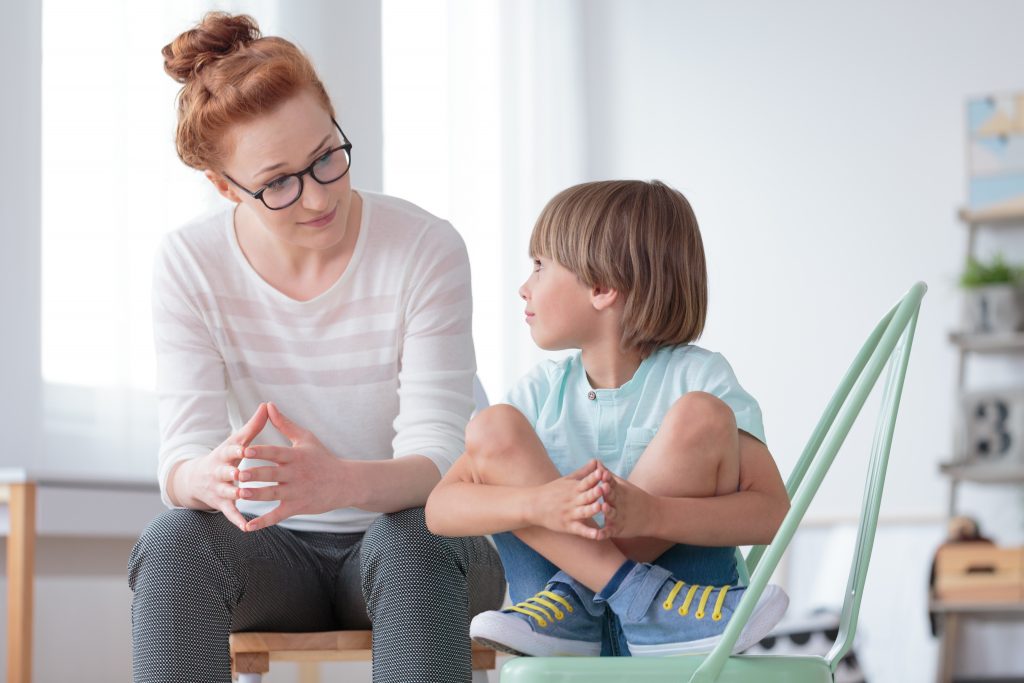9 Tips For Helping Your Child With Their Mental Health
Mental health is an important issue that shouldn’t be joked about. Unfortunately, some people don’t take mental health seriously, thinking sufferers can simply control their mindset and emotions in just a snap. While that may seem easy to a non-sufferer, that’s not how mental issues work.
Mental problems can happen to anyone, of all ages. It could happen to you, your children, siblings, parents, or even the stranger you passed by. People struggling with mental health illnesses may seem normal and okay on the outside, but you never know what battles they’re fighting on the inside. With that, it’s always best to be nice to everyone.
In times today, the issue of mental health has been rising. Some sufferers seek help in order to know what’s happening to their minds, while others try to fight their battles alone. It’s important to be there for them either way.
When it comes to your children, it can be difficult to determine whether they are facing battles you’re not aware of. That’s why communication between parents and children is key.
Moreover, listed below are the tips on how you can help your child with their mental health:
- Consider A Therapist
If your child has been open to you about their mental problems and how they’ve been having trouble coping by themselves, you should also be open about different ways on how you can help. If you’ve already tried your best to support and communicate with your child, or if they’ve asked specifically asked for it, considering bringing your child to a therapist may be beneficial.
When people hear the word “therapist”, their immediate reaction may be to think that there is something severely wrong with them, which may not be the case. While counselling may be a scary thing to think about, it’s an important step to try if your child is willing.
A therapist can help your child with different things. It could be trauma, addiction, stress, depression or anxiety. After identifying the issues that are happening with your child and having a private one-on-one discussion, they may be able to provide medications or exercises to aid further.
The benefits of anxiety therapy are endless, and if your child asks for it, you should, without a doubt, try to provide it for them. Willingness to seek help is an important step to potential recovery and/or management, and therefore, you should work with them and appreciate that they’ve trusted you with what’s going on with them.
You must know that not every child is open to their parents about their mental health. That’s why you should appreciate it when your child is.
- Build Trust
Not every child is comfortable opening up to their parents about their mental health. In most cases, they’re too afraid that their parents will judge them and think they’re just over-reacting or should just get over it.
It’s crucial to know that your child’s mental health is as vital as yours. Just because you can potentially handle your mental issues well, it doesn’t mean that your child can do the same. Everyone is different, and you should be aware of that.
To improve your relationship with your child and allow them to trust you to open up about their thoughts and emotions, you should try your best to establish trust between the two of you. You should never invalidate their feelings when they’re feeling sad, anxious, or in fear. Avoid telling them that there’s nothing they should be afraid of and instead address their concerns and potential outcomes.
When they’re feeling a negative emotion, accommodate for their feelings first and ensure they know you’re trying to understand what they’re going through and it’s okay to feel that way. When they’re open to suggestions, you may give a small piece of advice without forcing them to take it.
For example, if your child is experiencing bullying at school, you can ask them what you can do to help, whether that means speaking directly to the school or the parents of the child involved.
When you give your child options, you’re allowing your relationship to build trust as it instills into their minds that you’re willing to do whichever they’re most comfortable with.
- Give Them Time Alone
If you’ve ever experienced stress, you probably know how important it is to have just a moment alone to yourself. While you genuinely appreciate other people trying to help you, there are moments when you’d benefit from being able to take a deep breath by yourself.
When it comes to your child, they might need the same treatment as well. Not everyone is comfortable with communicating with going on in their minds immediately. Some people need some time to cool down so that they can think straight.
Suppose you notice that your child is going through something in their life. You can ask them what’s wrong. If they respond that everything’s okay, even if it’s evident that something is bothering them, tell them that you’ll be giving them all the space that they need, and you’re always there whenever they feel like talking again. With those words, you’re making your child feel comfortable, heard, and secure that someone’s always there for them.
As you give your child some time alone, you may also want to reassure them in other ways such as bringing their favorite food into their bedroom with an inspirational note attached. This small act may further allow them to feel supported, without needing direct face-to-face communications.
- Allow Them To Have Other Healthy Relationships
Not everyone finds pure comfort and relaxation with their parents no matter how open their families are. Sometimes discussing mental illness can be difficult. While that can be an unfortunate reality, you need to address that someone else could potentially help your child manage their mental health issues.
Even if you’re willing to do everything just to make your child speak to you, if they’re uncomfortable, it’s important not to force them to do so as it may further harm their mental state. In those cases, you should allow them to have healthy relationships with others who they feel more comfortable in confiding in.
Your child may be comfortable talking with their sibling, cousin, or best friend about their mental problems, and it’s important to remain supportive of that. The important thing is that they’re trying to get help, and they’re not bottling up their feelings inside of them.
The willingness of your child to go out and see friends is an important factor to be proud of, as many sufferers can sometimes struggle to do so.
Moreover, it’ll be a lot more helpful for your child if the person they communicate with can provide healthy relationships and wise advice to your child and not give awful help, putting them in more significant trouble.
- Be Consistent
One of the best things you could practice is staying consistent with trying to help your child. As a parent, there might come a time when you’re too stressed and tired to handle anything more. It’s not however always avoidable and you should consider trying to save yourself some room to address your child’s mental health.
When your child has asked for your help and you just ignored them by telling them that you’re too busy to handle it, it may give them the impression that you’re not there to listen. While you may not realize the affect you have on them in the moment, it’s important to reassure them of your support.
- Guide Them With Positive Management Techniques
What you can do as a parent to help your child cope with their mental health is guiding them with positive management techniques. While it can be easier said than done, you shouldn’t skip on this part as it can truly help your child overcome their fears and hopefully escape their cage.
You should consider teaching your child the things they can do when they’re in a particular position that may ease any anxiety. Some people don’t know what to do when they’re in the middle of a conflict and just do everything they can to get out of the situation, even if detrimental to themselves in the long run.
Giving your child management options on what they could potentially do and which sort they’re most comfortable in implementing when they’re in a middle of a challenging position is important. Some problems need to be faced immediately to avoid further harm.
You could teach your child to pause for a while and thoroughly think about the situation and identify which they think is the best solution to the problem without hurting anyone else. Allow them to be open to providing suggestions and options which could help in making things better.
- Teach Them To Help Others
In some cases, children think that they’re the only one who needs help and everyone around them is having a great day ahead of them. With that, you need to constantly remind your child that a lot of people may be going through a silent battle and that’s why they need to be nice to everyone.
You never know what different people in your life are going through. For example, the always-smiling student in your child’s class may be facing fighting parents at home, or being bullied by other students. It is, therefore, important to teach your child respect and ask them to reach out and offer support to others who are in need.
Help can come in the form of tutoring a fellow classmate, helping them pick up some books that had fallen from the shelves, lending their classmate a pencil, and more. Little kind gestures can go a long way, especially for someone who may be feeling incredibly isolated.
Sometimes individuals who struggle with their mental health will shut themselves off from others after concluding that no one cares. Therefore, ensuring your child is aware of and willing to lend a hand when they see fit could potentially ease the anxiety of another.
- Join A Support Group
Some people want to get insights from other parents who are experiencing the same thing they’re going through. While your friends and family can support what’s happening with your child, it’s easy to get offended by their judgements, even if you know they have your best intentions at heart.
To allow yourself to have peace of mind, it may be helpful to consider joining support groups with parents who also may be struggling to know what to do. In this kind of support group, you’re allowing yourself to have an open and safe space where you can freely speak about your thoughts and struggles without the fear of being judged.
As you take care of your mental health, you’re allowing yourself to help your child in a better mood without adding frustrations on their end.
Apart from the support group for parents, there are also support groups your child may wish to join as well. However, this needs to be discussed with your child to ensure they’re comfortable joining a group. Some children aren’t open to support groups as they fear being judged for their condition. While joining support groups could be helpful, don’t force your child into joining one if they’re not interested.
- Maintain A Healthy Lifestyle
One of the most harmless ways you can help your child with their mental health is by providing a healthy lifestyle at home.
You can practice having a regular and balanced diet in which you consume healthy foods and snacks for the entire household. It’ll also be helpful if you could exercise together as a family. You can allow a few minutes of your day where you can all follow a workout routine. Not only can you keep yourselves healthy, but your child can also be happy as you’re all doing something together as a family.
Conclusion
Mental health is a serious factor in one’s life that everyone should take seriously. People handle their mental issues differently, and just because you can control yours well doesn’t mean that your child can do precisely the same.
Never compare your feelings with your child and think that you had it worse or what they’re going through is nothing. If it bothers them, it’s something you need to look after. With your child, always try to be present and available.




